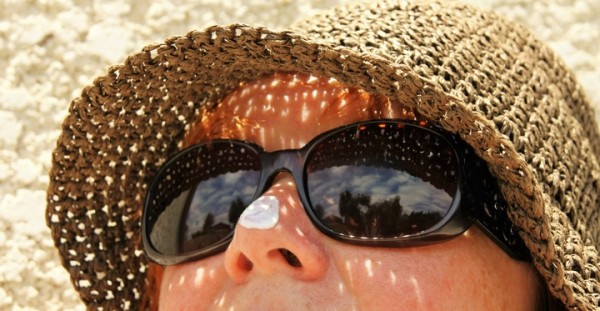Should You Apply Sunscreen Indoors? Here’s What Experts Recommend
When it comes to sun safety, we have luckily come a long way since it was a standard to apply some oil and go sunbathing to achieve that sun-kissed skin tone.
A 2015 National Health Interview Survey showed that 71 percent of Americans apply sunscreen nearly every time they go out for any reason on a sunshiny day.
The said percentage is up from just roughly 30 percent in 2005, based on a Journal of the American Academy of Dermatology review in 2011.
However, despite the rise in sun savvy in general, some blind spots continue even nowadays. The primary among them is the mistaken belief that one does not need sunscreen when indoors.
ALSO READ: 4 Natural Ways to Say Goodbye to Your Blackheads

Even when indoors, apply an adequate amount of sunscreen onto your ‘face, ears, neck, arms and chest,’ if they are uncovered.
The Need to Wear Sunscreen Even Indoors
According to dermatology assistant professor and director of Multicultural Dermatology and Hair Disorders at the University of California Davis, Oma Agbai, the UV radiation that's coming from the sun "can penetrate the most home and car windows." Meaning, even if you are behind closed doors, rays of light can also harm your skin.
If you are among the many who works from home due to the pandemic, chances are, you are allotting more time indoors than when you were commuting your way to your office.
Therefore, experts say, if you used to put on some sunscreen before going to work, you might typically be skipping this critical skincare step now that you are home-based.
So you know what really happens to your skin if you miss out on your SPF fix when indoors? If you think not wearing sunscreen when you're staying indoors does not have much of an impact on your health, particularly your appearance and skin, think again.
This article will enlighten you as skin experts weigh-in between what they know through their expertise and what people commonly believe but sometimes aren't true.
DON'T MISS THIS: US Buys Majority of Redemsivir Global Stock in Hopes of Ensuring COVID-19 Recoveries
You're Partially Shielded from the Heat of the Sun
Dr. Agbai identified the two ultraviolet types: the UVA and UVB rays. Each of the two penetrates different skin levels, not to mention affects different skin structures.
The UVB rays target layers of the superficial skin, the American Cancer Society said. They impair the DNA of the skin. DNA is the main cause of sunburn and results in most cancers of the skin.
The good news is that, in 2009, a Photodematology Photoimmunology and Photomedicine study revealed that window glass could filter out fatal UVB rays.
The not-so-good-news, though, is that windows are not that effective at blocking UVA rays, which enter the skin's deeper layers. The same research found that 74 percent of UVA rays are transferred through a glass, said dermatologist Tarannum Jaleel, MD, at the Duke Dermatology Clinic.
Experts' Recommendation
The bottom line here is that just because you're always indoors nowadays does not mean you don't mean the sunscreen or sunblock anymore.
It doesn't mean either that you should apply sunscreen only onto your exposed skin instead of just your face.
According to Dr. Agbai, apply an adequate amount onto your "face, ears, neck, arms and chest," if they are uncovered. Apply enough, and the doctor added, "to create a film on your own skin that you have to rub in."
Essentially, the type of sunscreen to apply matters. Meaning, you should look for what Dr. Agbai described as a "broad-spectrum sunscreen" containing an SPF of at least 30, which can block both UVA and UVB rays and provides partial protection from blue light.
Moreover, the expert said, sunscreens with iron oxide offer complete protection from blue light. They are consequently recommended for those who have "disorders of hyperpigmentation like solar lentigos or melasma." Dermatologists say all tinted sunscreens, including some non-tinted variants, have iron oxide.
The Skin Care Foundation said, if you are planning to spend some time outdoors, make it a goal to reapply sunscreen every two hours.
IN CASE YOU MISSED IT: Remdesivir Priced from $2,340 to $3,120 per Patient, Way Cheaper Than Estimated, Gilead CEO Says
Check out more news and information on Dermatology on MD News Daily.
Oct 27, 2020 09:00 PM EDT





